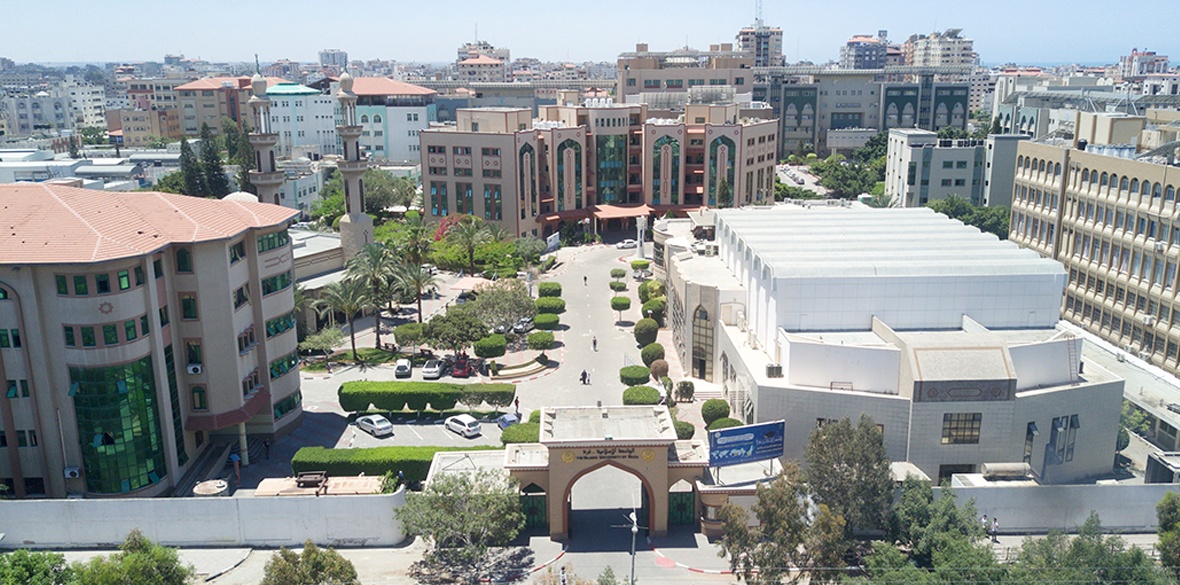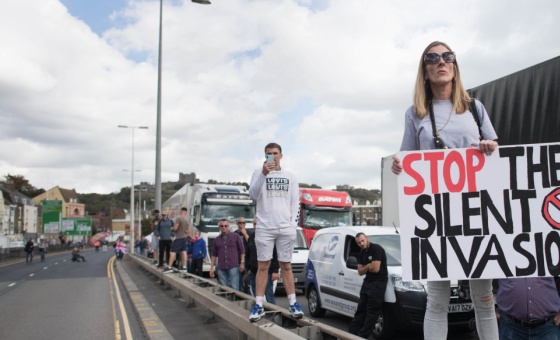This is the last article you can read this month
You can read more article this month
You can read more articles this month
Sorry your limit is up for this month
Reset on:
Please help support the Morning Star by subscribing here
A BRUTAL reminder that academics are part of society, rather than standing apart from it, is given by the fact that they are among the many casualties of both the Hamas attacks of October 7 and Israel’s continuing bombardment of Gaza.
As Nature reported earlier this week, those murdered in the Hamas attack included many students and faculty members of universities. Their deaths are a tragedy. Meanwhile, in the West Bank, university buildings have been identified as targets of Israeli bombing.
In-person teaching and research at all higher education institutions has stopped because travelling to campuses is too dangerous. Some 183 Palestinians have been killed in the West Bank by Israeli military forces since October 7 — their deaths are a tragedy too.
In Gaza, the situation for universities, like everything else, is utterly desperate. Of the six universities there, five have had buildings damaged or destroyed. The oldest institution, the Islamic University of Gaza, has had nine of its 14 buildings destroyed.
The IDF claimed on October 11 that it was being used as “a central training centre for Hamas engineers” and that conferences were being used to “raise funds for terrorism,” but did not provide evidence to Nature when asked.
Without judging the truth of these claims, it is worth stepping back to think about what their veracity could possibly justify. If Oxford University held a conference to raise funds for terrorism, should it be bombed? If a British hospital had a tunnel discovered in its basement, should it be bombed?
If a group of radicalised students met in a room at a London higher education college, should that legitimise destroying other buildings, wiping out cultural heritage and killing civilians associated with the organisation?
This line of argument from the IDF tries to blur the lines of “legitimate” humanitarian exceptions while simultaneously conducting a bombing campaign of a densely populated area with over two million people who cannot leave. Even if the IDF’s claim about the Islamic University of Gaza was true, it would not be a carte blanche to raze a university to the ground.
This is not the first time that Palestinian universities have been targeted on the basis of such claims. The Israeli army used a similar explanation to justify six air strikes on the same university in December 2008.
The UN fact-finding mission on that conflict concluded that “these were civilian, educational buildings and the mission did not find any information about their use as a military facility or their contribution to a military effort that might have made them a legitimate target in the eyes of the Israeli armed forces.” The university was bombed again in an air strike in 2014.
Resistance to Israeli restrictions on Palestinian freedom of movement has been central to the existence of the Islamic University of Gaza since its founding. Before 1972, Palestinian students mainly studied abroad in Egypt and Jordan.
But increasing limits on student migration by Israel led to the creation of universities in Gaza and the West Bank. The Islamic University of Gaza was founded as an independent university in 1978. It now has partnerships with international institutions, including the University of Glasgow.
The Islamic University of Gaza has regularly been portrayed by critics as a Hamas-controlled organisation. In 2007, a USAid report said that the university had been vetted eight times since 2002 as part of due diligence into whether the provision of financial assistance amounting to over $900,000 was in accordance with USAid policies: “None of these vetting requests resulted in derogatory information.”
The universities of Gaza persist in training and inspiring young people, when much about the situation under occupation is bleak. Further, the universities act as links to the wider world, allowing for continued participation in international research. Bill Williamson, an emeritus professor at Durham who has studied Palestinian higher education, said that “with all its flaws, [the system] was still working. It is now, at least in Gaza, being destroyed.”
Even if there were relationships between Hamas as the de facto government of Gaza and the thousands of people teaching and learning in Gaza’s universities, this would not legitimise bombing an entire university, particularly not ones that help to maintain Palestinian community and culture under a settler-colonial regime.
It is true that academic institutions are always part of society. This is why the Boycott, Divestments, Sanctions (BDS) movement calls for the boycott of academic and cultural institutions in Israel — precisely because they are “deeply complicit in the Israeli system of oppression that has denied Palestinians their basic rights.”
This is not a boycott against Israeli academics. The Palestinian Campaign for the Academic and Cultural Boycott of Israel — tasked by the Palestinian BDS National Committee with overseeing the academic and cultural aspects of BDS — is explicit that it is a ban against academic and cultural institutions in their role as institutions, rather than a boycott of individuals based on their citizenship or place of work: “Mere affiliation of Israeli scholars to an Israeli academic institution is therefore not grounds for applying the boycott.” Especially where Israelis who voice vocal opposition to the war being run by their own government, individual academics may need the strongest possible support.
Seeing the individuals within institutions is important, without losing sight of the political forces that shape institutions and how they act. It’s this act of understanding that can, in the best circumstances, allow people out of the bind, and let them stand up against the forces that bear down on them.
Similarly, acknowledging and mourning every human death is the right thing to do, without abandoning broader political analysis. As the Palestinian-US academic Edward Said wrote, “There is suffering and injustice enough for everyone.”
Said also said that the role of the intellectual is “to be someone who cannot easily be co-opted by governments or corporations, and whose raison d’etre is to represent all those people and issues that are routinely forgotten.” Academics should aspire to that aim. Universities are a fundamental part of society and, at their best, a way to strengthen links within a global community: the international flow of people and ideas.
Yet these are only so many fine words. Our duty to hear the voices of those in Gaza and others around the world who are suffering is imperative. Four researchers in Gaza contacted by Nature all expressed “a feeling that they are now alone.”
Mohammad Abu Jazar said: “I apologise for my boldness, [but I] don’t believe there is a scientific community, or global scientific community, that can do anything.” We still have to try.









